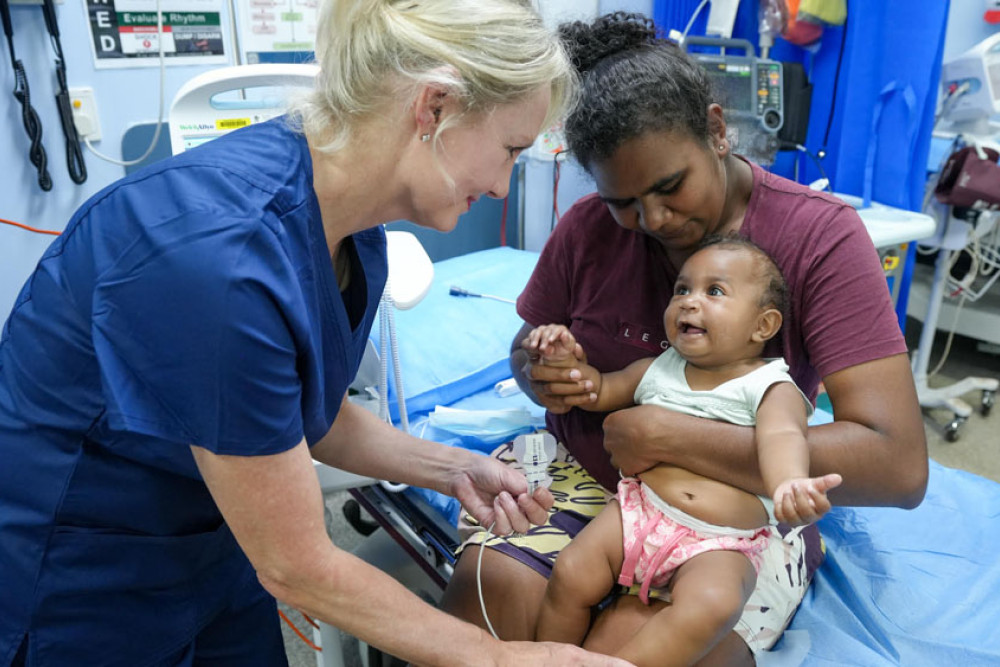General News
6 February, 2023
Respiratory treatment for children in FNQ set to improve
NEW research findings are set to improve childhood respiratory treatment and reduce unnecessary medical transfers across 18 rural and remote health centres throughout North and Far North Queensland.

Acute respiratory illnesses, e.g. bronchiolitis, asthma and pneumonia, are the most frequent cause of hospitalisation in children and 28 per cent of intensive care admissions.
Even more concerning, mortality rates from Acute Respiratory Failure can be up to 20 per cent in under-resourced communities – three to four times higher for Indigenous than non-Indigenous Australians.
In FNQ, 30 to 50 per cent of children with acute respiratory failure are transferred to hospitals in Cairns or Townsville, and 9-12 per cent are transferred to Southeast Qld.
‘PARIS on Country’ is a new study being launched by Queensland’s world-leading Paediatric Acute Respiratory Intervention Studies (PARIS) program. It is led by Chief Investigator Dr Donna Franklin, a researcher at Gold Coast University Hospital, Menzies Health Institute, Griffith University and James Cook University; she is also a member of the Paediatric Research in Emergency Departments International Collaborative (PREDICT).
The program aims to cut the number of children being transferred away to city hospitals by up to 50 per cent.
“Based on the evidence from two world-first clinical trials — PARIS I and II — we now understand when it is best to place an infant or child on nasal high-flow therapy and when to use standard oxygen as a first-line oxygen therapy,” Dr Franklin said.
High-flow oxygen therapy, which provides increased oxygen to patients via a nasal cannula, is rarely available in remote areas, and up to 50 per cent of all patients are transferred to city hospitals for a higher level of care than they may actually need.
“This causes emotional stress for children and families, unnecessary load on emergency departments, and huge transfer costs for the State,” Dr Franklin said.
“PARIS on Country will develop and implement a respiratory care training package to help rural and remote clinicians decide when to escalate treatment and seek specialist advice via tele-health.
“By providing local clinicians with the tools, education and information they need, we hope to see a positive change for these sick children.”
The resource and training pack is based on evidence from the world’s first PARIS trials, which were led by Dr Andreas Schibler, a researcher at Queensland’s Wesley Research Institute and a world leader in paediatric acute respiratory medicine and intensive care.
A pilot study is currently running successfully in three remote Queensland hospitals, including Weipa, Thursday Island and Cooktown, under PhD Candidate and Lead Investigator Sally West from James Cook University, with the educational materials we have used in all PARIS studies.
“This is a service parents in remote communities are desperate to see introduced. Having a child with breathing difficulties is stressful, but needing to transfer them away from country can be devastating, particularly for Indigenous families,” Ms West said.
The pilot study is now being expanded to 18 rural and remote hospitals across the Torres and Cape, Townsville, North West, and Cairns and Hinterland Hospital and Health Services.


